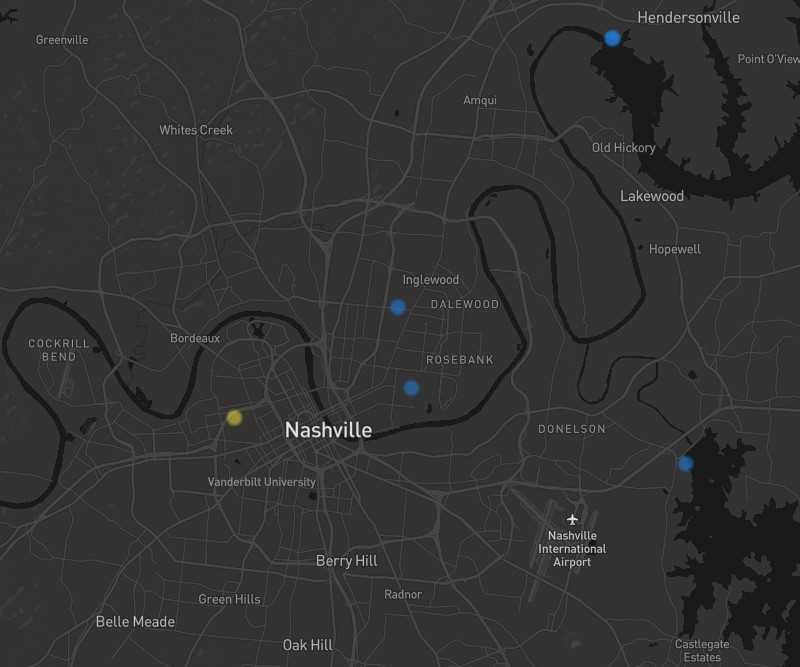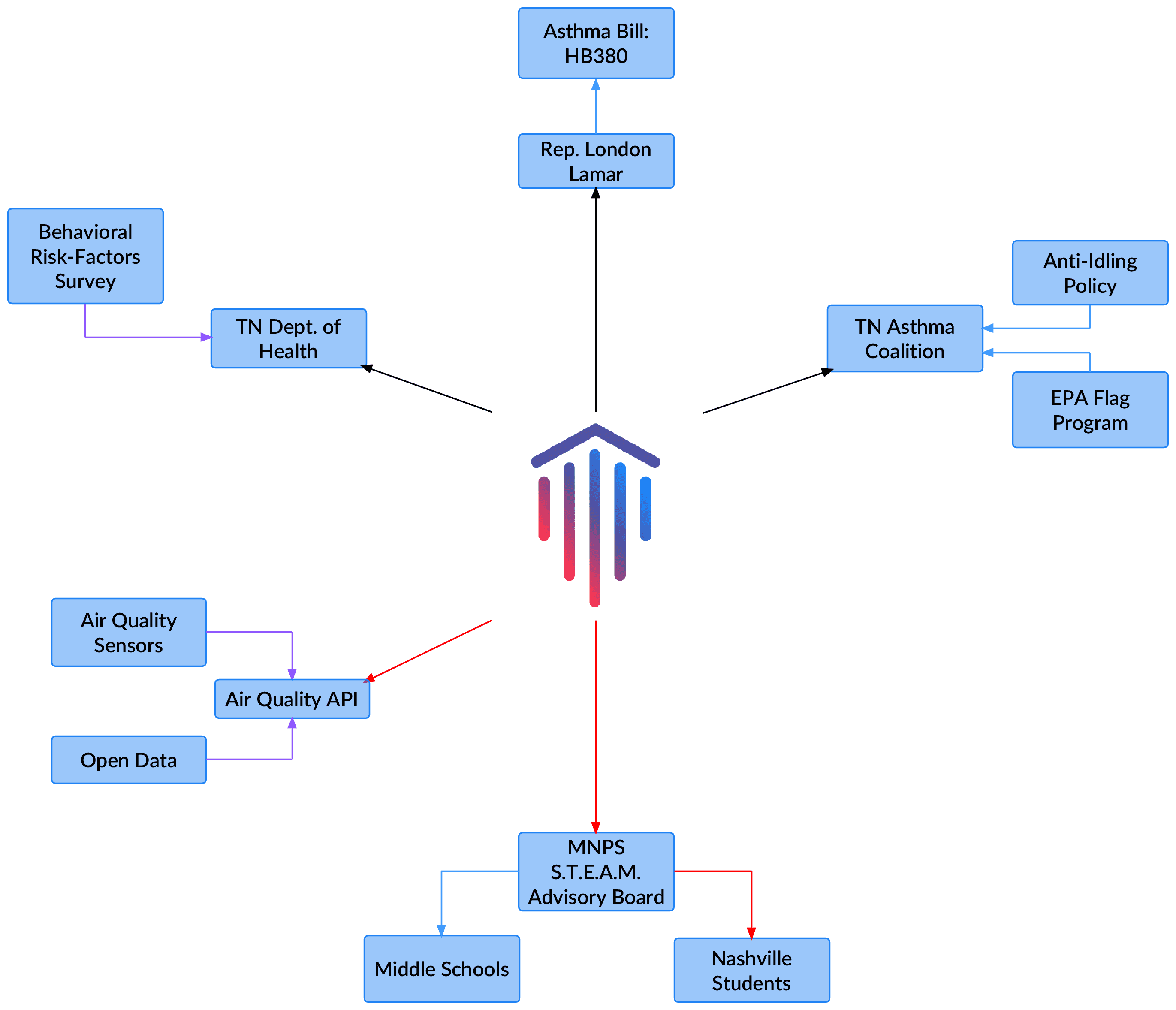You breathe, I breathe, Nashville Breathes

Breathable air is essential. Solid particles floating in the air, like dust, pollen, and air pollution, affect our ability to breathe. Solid and liquid particles floating in the air are called Particulate Matter. Traffic patterns, gas waste, winds, and the baseline air quality dictated by the planet's ecosystem serve as critical components in the air quality of any given day. Due to global deforestation and lack of reliable public transportation options, Nashville runs a risk of having more days where it's harder to breathe. On those hard-to-breath days, infants and those with breathing problems have more difficulties breathing than usual.
Our Nashville Breathes plan consists of four components:
- Enhancing air quality awareness using student participation at its center.
- State legislation that requires the TN Dept of Health to report Asthma-related data.
- Expanding the air quality data network
- Providing digital tools for easy use of air quality data.
Our impact schemes routinely have components of software, data, and policy. As I mentioned in a previous post, Civic Hacker's mission is to use our tooling to empower activists, which in this case, are MNPS students. For instance, ENCORE students at Rose Park Middle took the lead by including their school community and Metro Council in the air quality awareness drive.
Our #NashvilleBreathes plan has Rose Park Middle @encorerose students participating in the #AirQualityFlagProgram w/ the support of @MNPS_STEAM, @NashvilleHealth, @TNDeptofHealth, @TNEnvironment, @Cumberlandpf, and @LungAssociation. Learn more at https://t.co/N1o47QfpXc pic.twitter.com/tKerfp2mjm
— Civic Hacker (@civichackerhq) February 13, 2020
Since lists are fantastic, here's the stakeholders and strategic partners that helped to make this plan a reality:
- MNPS STEAM Advisory Board
- Metro Nashville Public Health Department
- American Lung Association (Tennessee Chapter)
- TN Asthma Coalition
- Metro Nashville Public Schools (MNPS)
But wait, there's more
Civic Hacker wants to expand the air quality network in Nashville using citizen science. Currently, Nashville has four air quality senors, all positioned in the east and northeast parts of Davidson County. Managed by the Metro Health Department, they report air pollutant concentrations to the EPA hourly. The Tennessee Department of Health our environmental data and generates a forecast for the next day's air quality.

The graphic shows the sensors do not provide adequate coverage for the city. The positioning of our air quality sensors does not take into account population migration patterns due to rising housing costs and gentrification. Civic Hacker is currently seeking strategic partners to help build out citizen-driven sensor network.
Civic Hacker has already done the hard work, curating Key Resources to induce positive social change within Nashville. This project started in January 2019. The story of how this project has gotten so far so quickly is the best represented by the following graphic:

In Conclusion
Adaptation to climate change is possible with software, policy, and data, the Civic Hacker way.
